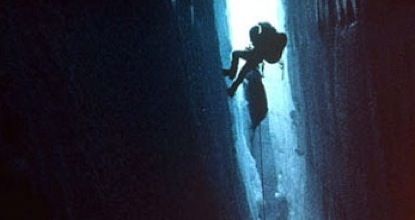I confess that I don’t read enough poetry. Yesterday I
sat in Ashers café near the bus station reading war poetry. A friend, from the
Spectrum centre writers’ group, had mentioned she was doing a history course
focussing on conflict and resolution. I’d bought the book second hand and
thought she might like it.
War is sad and there’s no getting away from it. What is
really sad is about who pays the price in real terms. There’s a ruling class
who don’t suffer the same kind of losses. They direct their forces but, too
often, they themselves are safe.
I also confess that there’s a lot of poetry that I don’t
understand. I write for content, not for form. I don’t think about whether the
form matches the content. But then, do readers think about the form when they
are reading? I understand that choosing the right form adds to the impact of
the poem and that there is something going on at a subconscious level. The form
is underlying the message.
 Having said that I wrote a poem for the Spectrum writers’
group, for homework. The prompt was “limits” or being on the edge of something.
We had listened to a section from a book “Touching the Void”. An injured man,
presumed dead from a fall, drags himself across a snow filled landscape. He
pushes himself to the limit to survive. My poem was about the edge of
scientific research, about pushing the boundaries dishonestly, perhaps for the
wrong motives.
Having said that I wrote a poem for the Spectrum writers’
group, for homework. The prompt was “limits” or being on the edge of something.
We had listened to a section from a book “Touching the Void”. An injured man,
presumed dead from a fall, drags himself across a snow filled landscape. He
pushes himself to the limit to survive. My poem was about the edge of
scientific research, about pushing the boundaries dishonestly, perhaps for the
wrong motives.
The Edge of
Science
Fools! They must
see the fault in their ways
Science and
knowledge – there are no delays
They’re coming –
those aliens – we must be their match
Foiling the plans
that the green men might hatch
I needed the
funding and filled out the form
Stretching the
truth, lying’s the norm
Pages of data, and
who’s going to check
The numbers and
letters and all of that tech?
Oh, yes, I cut
corners, as scientists do
There’s far too
much red tape that needs tiptoed through
I skipped out the
tests on the mice and the rats
Bypassed the dogs,
the rabbits and cats
I thought of the
primates, monkeys and all
Went straight for
the humans – that was my call
There’s plenty of
people - a few won’t be missed
Bad ones and sad
ones and those rarely kissed
A basement with
beds and belts to restrain
And drugs by the
armful to manage the pain
We’re here on the
edge of a medical wave
Based on the work
of the bold and the brave
About cutting
corners - who’s going to care
When I have the
answers ready to share?
And if through the
science there’s money to make
That’s a diversion
I’m willing to make
Know this,
invaders, the battle won’t last
Your green swaying
bodies, we’re ready to blast
The form is a rhyming, sing-song nursery-like poem. It
really was at odds with the content. Before the lecture, I wouldn’t have given
it a minute’s thought. Afterwards I thought long and hard about the form. There
was almost something grotesque about it – the nursery-like rhythm and rhyme and
the horror of people in beds being pumped full of drugs so research can be sold
off to the highest bidder.
I decided to leave it as it was. The impact was there in
both content and form. Dissonance is the lack of harmony between musical notes.
I’m not sure why musicians do it, or composers. My poem had dissonance. It was
not an easy read. It got under the skin – which is what poetry is all about.
I am into a month of the degree course. My husband asked
if I thought I was getting my money’s worth. It’s too early to tell. I haven’t
done anything that I couldn’t already do. There is nothing that is stressing me
out. The unit is an introduction to creative writing, so I assume we don’t go
deep into anything as yet. It’s a gentle way to ease me in.
I’m struggling to find a balance between spending time
writing and spending time on housework. That was there long before I began the
degree course!
It’s all about discipline – that thorn in my flesh that
won’t go away.
.
No comments:
Post a Comment